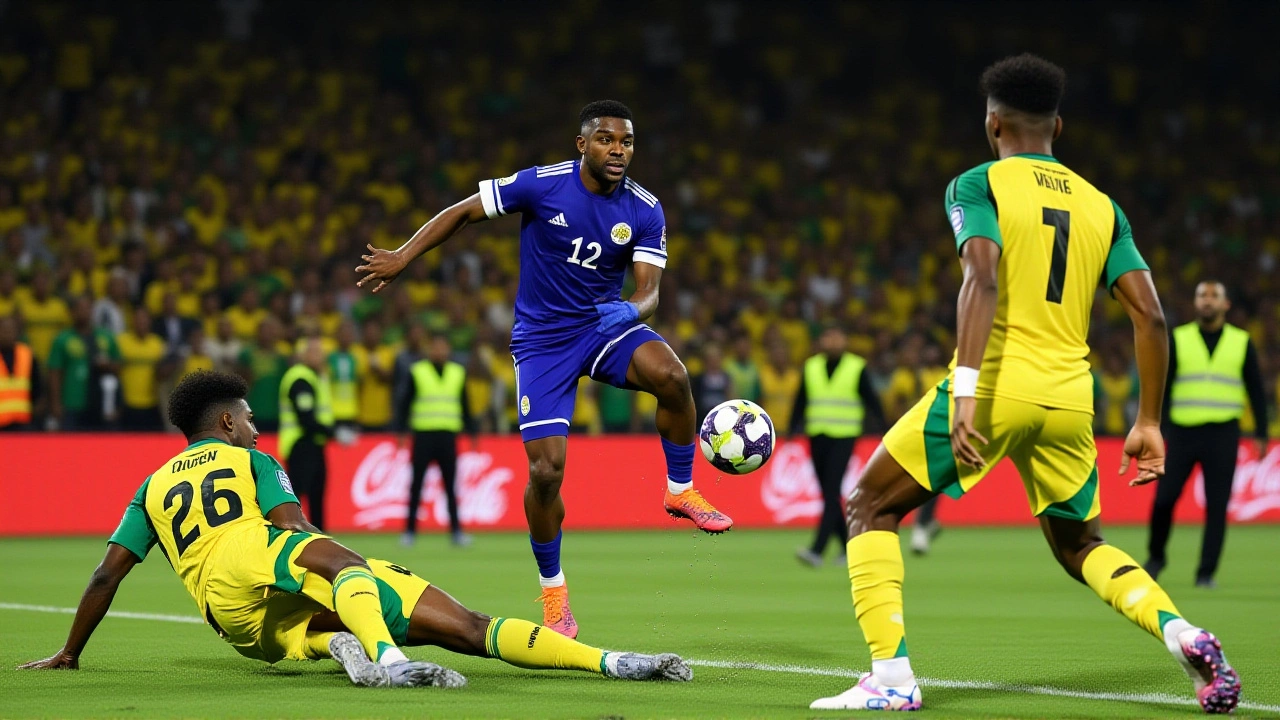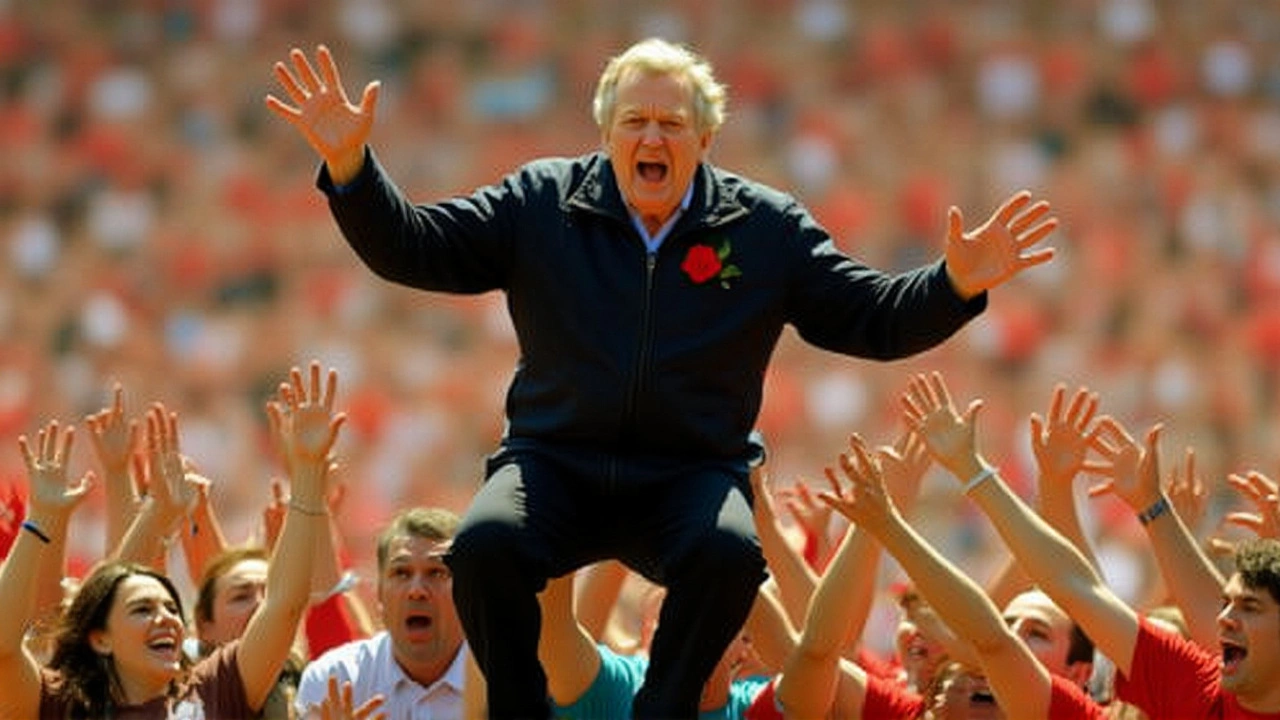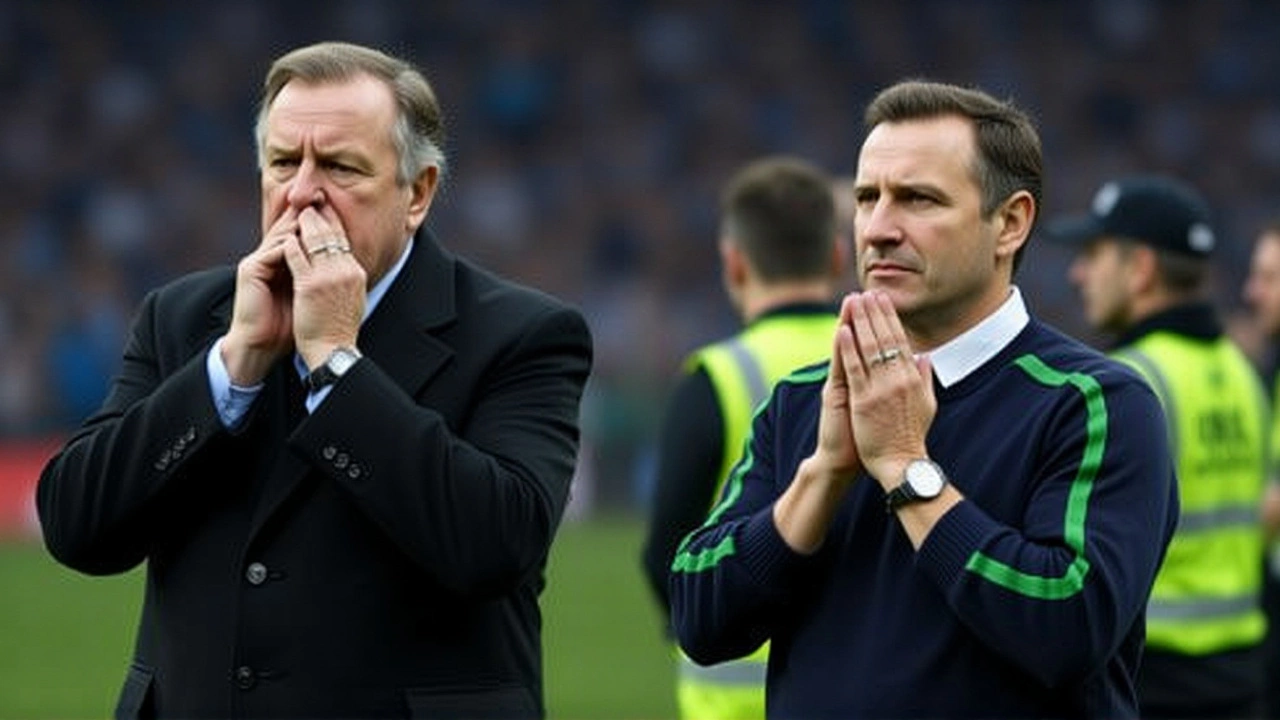
On Tuesday, November 19, 2025, a 0-0 draw in Kingston, Jamaica, didn’t just end a match—it rewrote football history. Curaçao, a Caribbean island nation of just 156,000 people, became the smallest country ever to qualify for the FIFA World CupUnited States, Canada, and Mexico, clinching their spot with a gritty, nerve-wracking stalemate against Jamaica at Kingston's National Stadium. The result capped a nine-match qualifying campaign that saw Curaçao win seven, draw one, and lose just once, finishing top of CONCACAF Group B with 12 points—one clear of Jamaica. For a place many couldn’t find on a map before this year, it’s not just a win. It’s a seismic shift.
From Obscurity to Global Spotlight
For decades, Curaçao’s football identity was defined by its colonial past and underfunded infrastructure. But since roughly 2015, the Curaçao Football Federation (FFK), headquartered in Willemstad, began a quiet revolution. Youth academies popped up. Coaching licenses were prioritized. Local talent, often overlooked for Dutch clubs, was nurtured. The strategy wasn’t flashy—it was systematic. They didn’t aim to win every game. They aimed to win the right ones. And in 2025, it paid off in the most dramatic way possible.The final match was a masterclass in resilience. Jamaica, coached by former England manager Steve McClaren, threw everything at Curaçao in the second half. Three times, the woodwork saved the day—most memorably when substitute Bailey-Tye Cadamarteri’s 87th-minute header thudded off the post. The crowd in Kingston erupted. The Curaçao bench held their breath. And then… silence. The whistle blew. The players collapsed to their knees. Some wept. Others stared at the sky. This wasn’t just qualification. It was validation.
The Man Behind the Scenes
Head coach Dick Advocaat, the 72-year-old Dutch tactician who guided the Netherlands to Euro 2000 and later managed Sunderland and Zenit St. Petersburg, was absent. A family emergency pulled him back to the Netherlands just hours before kickoff. His assistant coaches, largely unknown outside the Caribbean, stepped into the spotlight. They held the team together with calm, tactical discipline. No panic. No grand speeches. Just a reminder: “One more hour. One more chance.”On the pitch, Juninho Bacuna was the heartbeat. The 27-year-old midfielder, who once played for Huddersfield Town, Rangers, and Birmingham City, had spent years carrying the weight of expectation. “It’s crazy,” he said before the match. “A few years ago, you wouldn’t even think about this. But now? We’re this close.” After the final whistle, he was among the first to embrace the goalkeepers, the defenders, the 16-year-old academy kid who’d made his debut just weeks earlier. This wasn’t just his dream—it was every kid who’d ever kicked a ball on a dusty field in Willemstad.

What This Means for Curaçao
This isn’t just about football. It’s about identity. For a nation that’s part of the Kingdom of the Netherlands but fiercely proud of its own culture, language, and heritage, the win has sparked a wave of national unity. Muryad de Bruin, Managing Director of the Curaçao Tourist Board, put it plainly: “This is more than football. This is pride, identity, and connection. Once again, Curaçao shows that a small island can make a big impact.”Before this, Iceland held the record as the smallest nation to qualify, with 350,000 people in 2018. Curaçao nearly halved that number. And unlike Iceland, which had decades of professional leagues and a population with deep ties to European football, Curaçao built this from scratch—with no top-tier domestic league, no billionaire owners, no global sponsors. Just passion.
The ripple effects are already visible. Tourism inquiries from Europe and North America surged 400% in the 72 hours after the match. Local businesses reported record sales of blue-and-white merchandise. Schools are planning World Cup-themed lessons. And for the first time, young athletes on the island are being told: “You don’t need to be big to be great.”
What’s Next for the Blue Wave
Curaçao’s group stage opponents in the 2026 World Cup aren’t yet known—but they’ll face giants. The draw takes place in December. Still, the team’s confidence is unshakable. Their path to qualification included a 7-0 thrashing of Bermuda and a 2-0 win over Jamaica just weeks before. They’ve proven they can compete. Now, they’ll prove they belong.Meanwhile, Haiti qualified for the first time in 52 years, and Panama secured their third World Cup berth. Suriname, despite a loss to Guatemala, will fight for a playoff spot. But none of them did what Curaçao did: turn a population smaller than a mid-sized American city into a global symbol of possibility.

Why This Matters Beyond the Pitch
The 2026 World Cup is the first to feature 48 teams—a change that opened the door for nations like Curaçao. But without the FFK’s decade-long investment in grassroots development, that door wouldn’t have been enough. This is a case study in how small nations can punch above their weight—not with money, but with vision.It’s also a reminder that football, at its best, isn’t about stadiums or salaries. It’s about belief. And in Curaçao, belief finally had its moment.
Frequently Asked Questions
How did Curaçao manage to qualify despite having such a small population?
Curaçao’s success stems from a decade-long investment by the Curaçao Football Federation in youth academies, coach education, and tactical consistency. Rather than chasing flashy signings, they focused on developing local talent and building a cohesive team culture. Their 7 wins in 9 qualifying matches—including a 7-0 rout of Bermuda—showed they could dominate weaker opponents and grind out results against stronger ones.
Who is Juninho Bacuna, and why is he so important to Curaçao’s team?
Juninho Bacuna is a 27-year-old midfielder who played professionally in England and Scotland, bringing invaluable experience to Curaçao’s squad. He’s the team’s most recognizable name and its emotional anchor. His leadership on the pitch and his public advocacy for the team’s cause helped galvanize support both on the island and among the global diaspora. He scored key goals in the qualifying campaign and was instrumental in maintaining morale during Dick Advocaat’s absence.
What impact will this have on Curaçao’s economy and tourism?
In the immediate aftermath, tourism inquiries jumped 400%, and local businesses reported a spike in sales of national merchandise. The Curaçao Tourist Board expects long-term benefits as the island gains global visibility. Airlines are already exploring new routes, and international broadcasters are negotiating coverage deals. This could be the most significant economic boost the island has seen in a generation—not from oil or banking, but from football.
Why was Dick Advocaat not present for the decisive match?
The 72-year-old Dutch coach had to return to the Netherlands unexpectedly due to a family emergency, leaving assistant coaches in charge. Despite his absence, the team maintained the tactical discipline he instilled over months of preparation. His leadership during the qualifying campaign laid the foundation, and the staff executed his vision under pressure, proving the program’s depth beyond any single individual.
How does Curaçao’s population compare to other World Cup qualifiers?
Curaçao’s population of 156,000 is less than half of Iceland’s 350,000 when they qualified in 2018—the previous record holder. It’s smaller than many U.S. cities like Boise or Madison. By contrast, the largest qualifier, the United States, has over 330 million people. Curaçao’s achievement makes it the smallest sovereign nation in World Cup history, proving that size doesn’t determine potential.
What’s next for the Curaçao Football Federation?
The FFK plans to use this momentum to push for professional league status and increased funding from the Dutch Football Association. They’re also negotiating partnerships with European clubs for youth exchanges and training camps. Long-term, they aim to make Curaçao a hub for Caribbean football development, turning their World Cup run into a sustainable legacy—not just a one-time miracle.